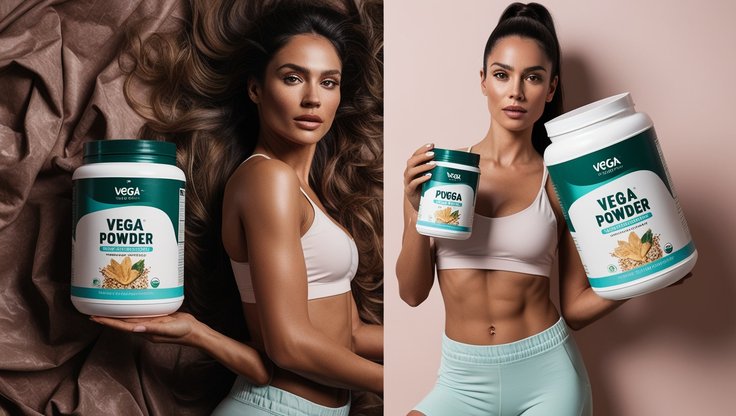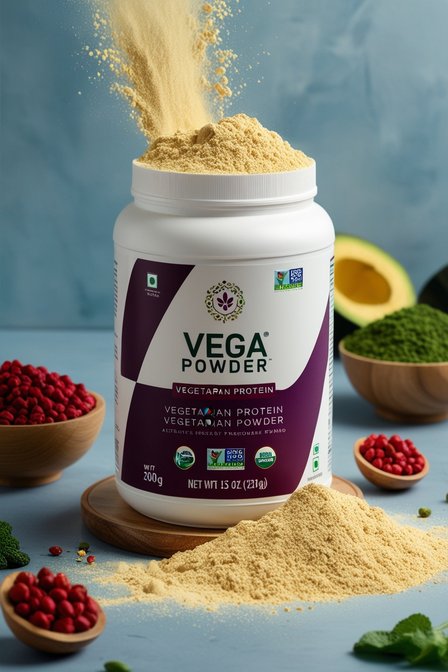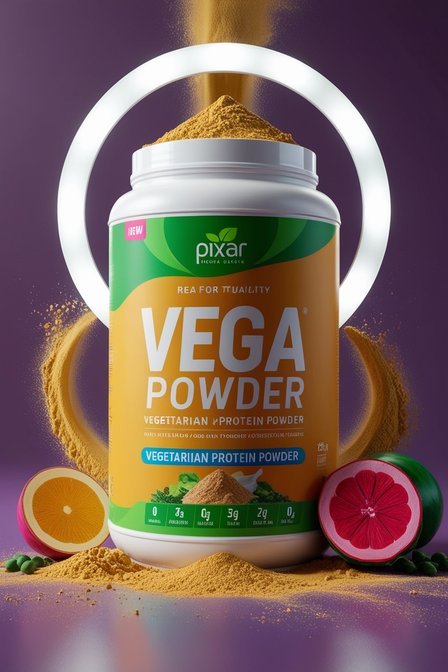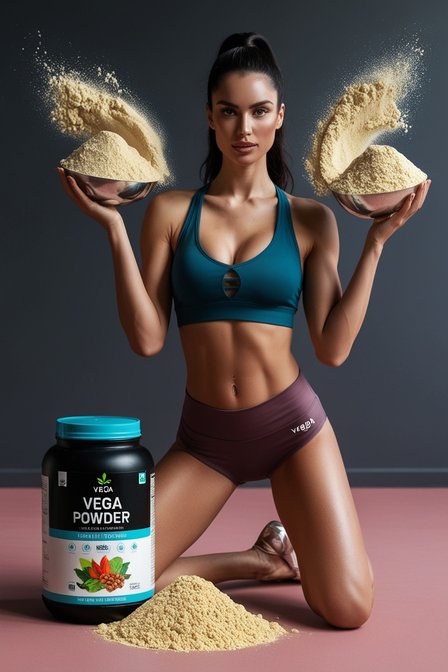Best Protein Powder: A Comprehensive Guide
Protein powder is a staple in the fitness and health industry, offering a convenient way to boost protein intake for muscle growth, recovery, and overall health. With the myriad options available, finding the best protein powder can be overwhelming. This guide will explore the various types of protein powder, their benefits, and considerations for choosing the right one for your needs.
Understanding Protein Powder
Protein powder is a concentrated source of protein derived from animal or plant sources. It comes in various forms, including whey, casein, soy, pea, hemp, and rice protein. Each type has unique benefits, making it essential to understand their differences to make an informed choice.
Whey Protein
Whey protein is one of the most popular protein powders, known for its high biological value and rapid absorption. Derived from milk during the cheese-making process, whey protein is rich in essential amino acids, particularly branched-chain amino acids (BCAAs), which are crucial for muscle repair and growth.
Benefits of Whey Protein:
- Rapid Absorption: Whey protein is quickly digested and absorbed, making it ideal for post-workout recovery.
- Muscle Growth: The high BCAA content supports muscle protein synthesis and growth.
- Immune Support: Whey protein contains immunoglobulins that can boost the immune system.
- Weight Management: It can help with weight loss by promoting satiety and reducing overall calorie intake.
Casein Protein
Casein protein, also derived from milk, is known for its slow digestion rate, providing a steady release of amino acids over several hours. This makes it an excellent option for sustained muscle repair and growth.
Benefits of Casein Protein:
- Sustained Release: Ideal for nighttime use, ensuring a steady supply of amino acids while you sleep.
- Muscle Preservation: Helps prevent muscle breakdown during periods of fasting or low protein intake.
- Satiety: Its slow digestion can help keep you feeling full for longer periods, aiding in weight management.
Plant-Based Protein Powders
For those who prefer a vegan or vegetarian diet, plant-based protein powders are an excellent alternative. Common sources include soy, pea, hemp, and rice protein. These options cater to individuals with dairy allergies or those who follow a plant-based lifestyle.
Soy Protein:
Soy protein is a complete protein, meaning it contains all essential amino acids. It is derived from soybeans and is an excellent option for vegetarians and vegans.
Benefits of Soy Protein:
- Complete Protein: Provides all essential amino acids needed for muscle repair and growth.
- Heart Health: Soy protein has been linked to improved heart health by lowering LDL cholesterol levels.
- Bone Health: It contains phytoestrogens that may support bone health.
Pea Protein:
Pea protein is made from yellow split peas and is highly digestible. It is rich in BCAAs and is a great option for those with allergies to dairy, soy, or gluten.
Benefits of Pea Protein:
- Hypoallergenic: Suitable for individuals with common food allergies.
- Muscle Growth: High in BCAAs, supporting muscle protein synthesis.
- Digestibility: Easily digested and less likely to cause bloating.
Hemp Protein:
Hemp protein is derived from hemp seeds and is rich in omega-3 and omega-6 fatty acids. While not a complete protein, it offers numerous health benefits.
Benefits of Hemp Protein:
- Omega Fatty Acids: Supports heart health and reduces inflammation.
- Digestive Health: High fiber content aids in digestion and promotes gut health.
- Antioxidants: Contains antioxidants that protect against oxidative stress.
Rice Protein:
Rice protein is made from brown rice and is hypoallergenic. It is often combined with pea protein to create a complete protein profile.
Benefits of Rice Protein:
- Hypoallergenic: Suitable for those with food sensitivities.
- Digestibility: Easily digested and gentle on the stomach.
- Muscle Maintenance: Supports muscle repair and maintenance.
Factors to Consider When Choosing Protein Powder
Selecting the best protein powder depends on individual needs and preferences. Here are some key factors to consider:
1. Protein Source:
Determine whether you prefer animal-based or plant-based protein. Whey and casein are excellent for those who consume dairy, while soy, pea, hemp, and rice protein are suitable for vegans and vegetarians.
2. Digestibility:
Consider your digestive health and any food sensitivities. Opt for easily digestible options like whey isolate, pea protein, or rice protein if you have a sensitive stomach.
3. Amino Acid Profile:
Look for a protein powder with a complete amino acid profile, especially if your goal is muscle growth and repair. Whey, soy, and pea protein are great options.
4. Absorption Rate:
Choose a protein powder based on when you plan to consume it. Whey protein is ideal for post-workout recovery due to its rapid absorption, while casein is better for sustained release, such as before bed.
5. Flavor and Mixability:
The taste and texture of protein powder can vary significantly. Read reviews and consider trying small samples to find a flavor you enjoy and a powder that mixes well with your preferred liquids.
6. Nutritional Content:
Check the label for additional ingredients, such as added sugars, artificial flavors, or fillers. Opt for a protein powder with minimal additives and a high protein content per serving.
7. Dietary Goals:
Align your choice with your dietary goals. If you're aiming for weight loss, choose a protein powder with fewer calories and added nutrients to support your goals.
Popular Brands and Products
The market is flooded with protein powder brands, each offering unique formulations. Some popular and reputable brands include Optimum Nutrition, Dymatize, Garden of Life, Vega, and Naked Nutrition. These brands offer a range of options to cater to different dietary needs and preferences.
Optimum Nutrition Gold Standard Whey:
One of the best-selling whey protein powders, known for its high quality, excellent mixability, and wide range of flavors.
Dymatize ISO100:
A hydrolyzed whey protein isolate that is quickly absorbed, making it perfect for post-workout recovery. It is also lactose-free, catering to those with lactose intolerance.
Garden of Life Raw Organic Protein:
A plant-based protein powder that combines multiple protein sources, including pea, brown rice, and chia seeds, providing a complete amino acid profile.
Vega Sport Premium Protein:
Designed for athletes, this plant-based protein powder offers a high protein content, BCAAs, and additional nutrients to support performance and recovery.
Naked Nutrition Naked Whey:
A clean whey protein powder with no additives, artificial sweeteners, or flavors. It is sourced from grass-fed cows and minimally processed.
Incorporating Protein Powder into Your Diet
Protein powder is versatile and can be incorporated into your diet in various ways. Here are some ideas to help you get creative with your protein intake:
Smoothies and Shakes:
One of the most popular ways to consume protein powder is by blending it into smoothies and shakes. Combine your favorite protein powder with fruits, vegetables, nut butter, and a liquid base (such as water, milk, or plant-based milk) for a nutritious and delicious drink.
Baking:
Add protein powder to your baking recipes to boost the protein content of your favorite treats. You can mix it into pancake batter, muffins, cookies, or even homemade protein bars.
Oatmeal and Cereal:
Stir a scoop of protein powder into your morning oatmeal or cereal for a protein-packed breakfast. This can help keep you full and satisfied throughout the morning.
Yogurt and Pudding:
Mix protein powder into yogurt or homemade pudding for a creamy, protein-rich snack or dessert. This is a great way to enjoy a sweet treat while meeting your protein needs.
Savory Dishes:
While less common, protein powder can be incorporated into savory dishes like soups, stews, and sauces. Choose an unflavored or lightly flavored protein powder to avoid altering the taste of your dish.
Conclusion
Finding the best protein powder requires considering your dietary preferences, fitness goals, and individual needs. Whether you choose whey, casein, or plant-based protein, each type offers unique benefits to support your health and fitness journey. By understanding the differences and considering factors like digestibility, amino acid profile, and nutritional content, you can make an informed decision and incorporate protein powder into your diet effectively. With a variety of options available, there's a protein powder out there to suit everyone's needs and preferences.




